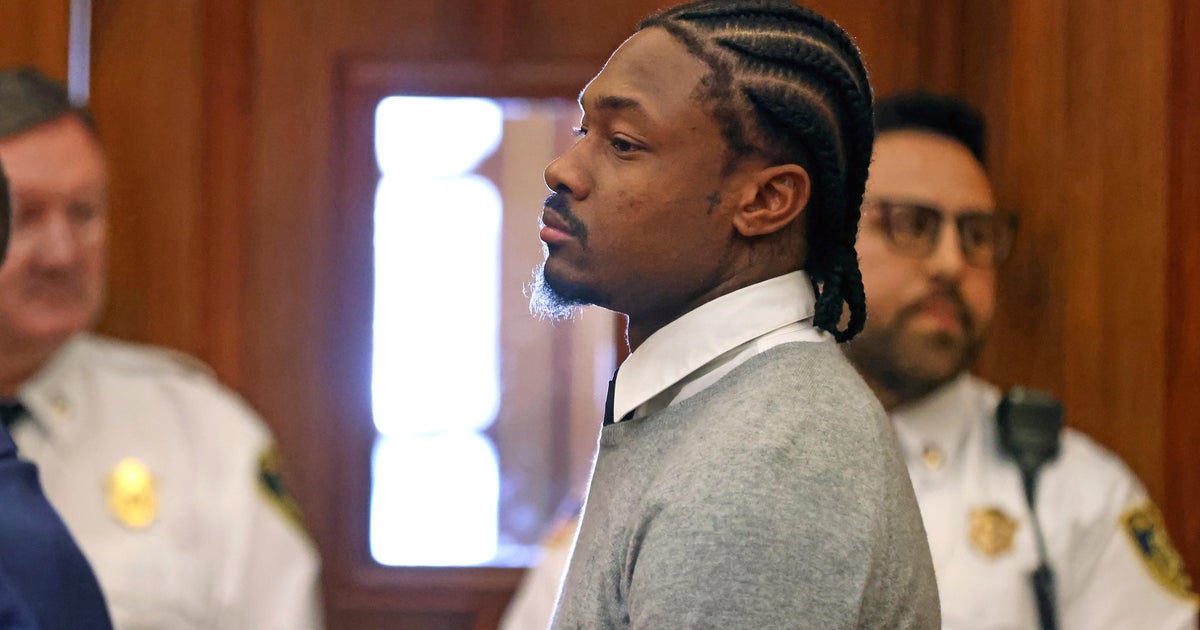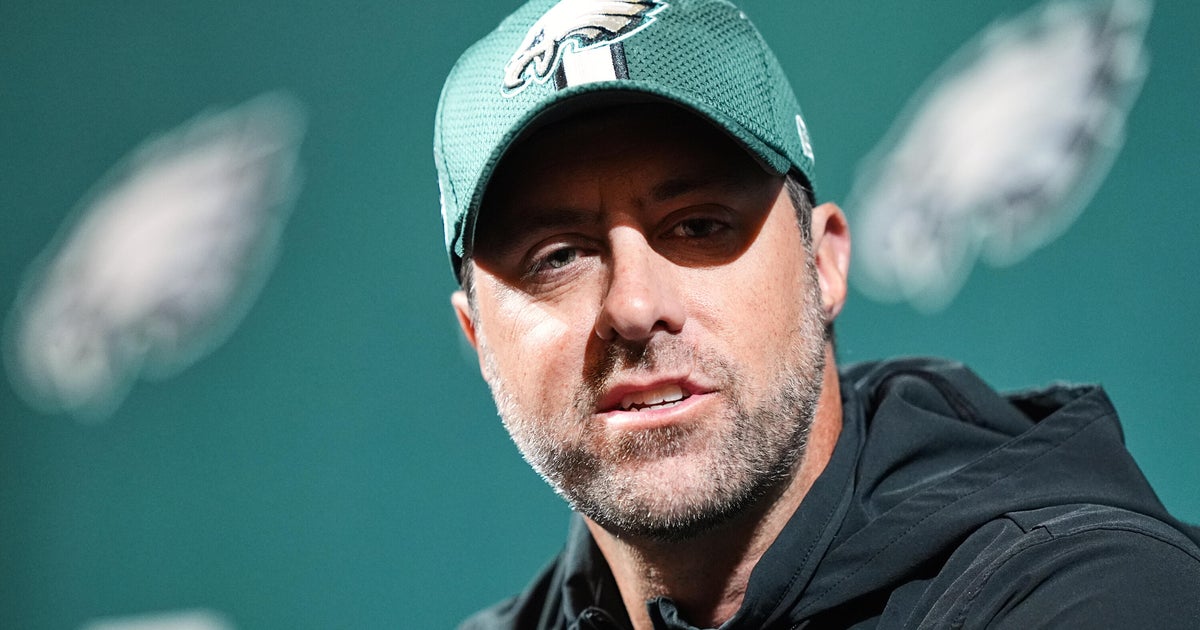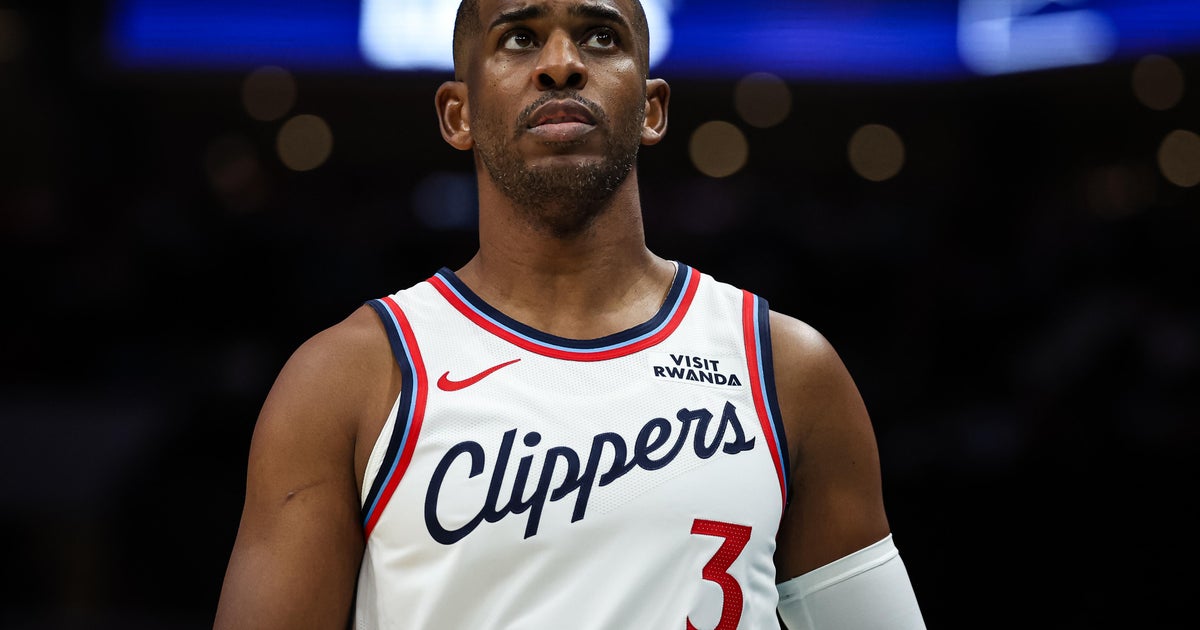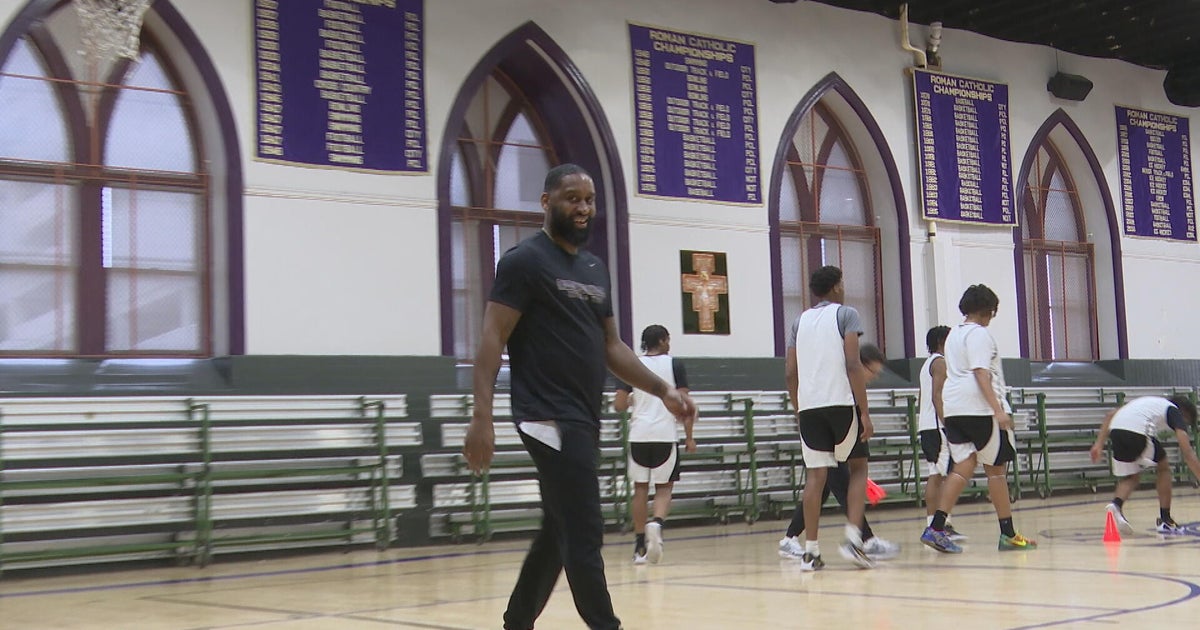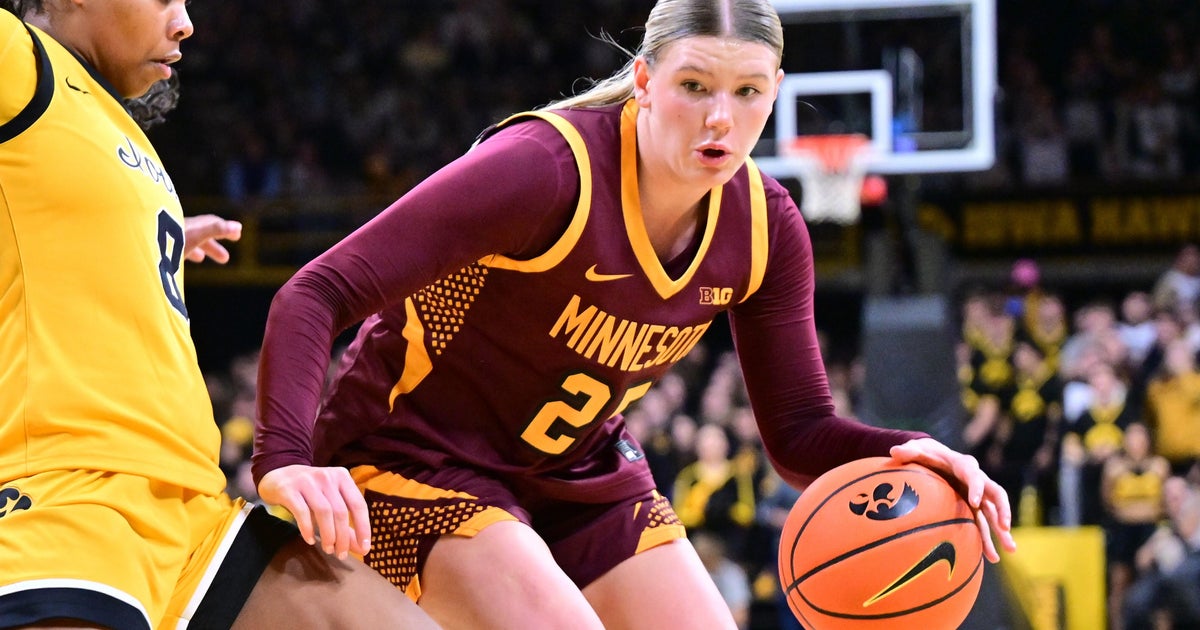Tom Brady's Stats In The Fourth Quarters Of Super Bowls Are Kind Of Insane
By Michael Hurley, CBS Boston
BOSTON (CBS) -- Depending on how closely you follow the career of Phillip Rivers, you may be surprised to learn that the 37-year-old longtime Chargers quarterback is 15 years deep into a Hall of Fame career. The shotputting legend ranks eighth all time in NFL history in passing yards and sixth all time in touchdown passes, and he's likely to move up a spot before his career is finished.
Yet, of course, Rivers has never won a Super Bowl. He's never even made it to a Super Bowl. As a starting quarterback, his record is just 118-90 in the regular season. In the playoffs, he's 5-6, only making it to a single AFC Championship Game in his 13 years as a starter.
Given his unique place in NFL history, Rivers made for a compelling subject to be asked about all-time quarterback rankings by Dan Patrick this week. Rivers -- who stated plainly that he cannot say that he's better than Tom Brady (duh?) -- offered up the following answer when asked what role winning championships should play in ranking quarterbacks throughout history.
Rivers said:
It's a crazy deal in that sense, because the quarterback and the head coach are the only ones tied to the record.
...
I remember thinking when the Patriots beat the Seahawks, when they had the interception down there on fourth-and-1, and that gave them, what, their fifth championship? Brady's fifth, I think.
[Note: It was a second-and-goal play, not a fourth-and-1. And it was Brady's fourth championship, not his fifth. Tough to keep track. Understandable.]
And everybody said, 'Well he's now the greatest of all time.' And I thought to myself, well I already thought he was one of [the best] -- I mean, how do you ever decide that? It's like the old Michael Jordan [debate], right? We could talk about that forever, too. But I always thought he was already one of the greatest of all time, but because they intercepted the pass, he's now the greatest of all time? What if the Seahawks would've ran it in, and the Seahawks would've won? Brady just played the exact same game, he hadn't done anything different, you know? But it is funny how that works.
So, I don't look at that. That's why I always think [Dan] Marino's right there in the mix, too. All these guys. I mean you can't just go off that, I don't think that you can. Not in this sport, especially.
To a certain extent, Rivers' comments make sense. Surely, Brady had nothing to do with Malcolm Butler picking off Russell Wilson on one of the worst decisions in sports history by Pete Carroll and Darrell Bevell. We could further that obvious point by saying that Brady didn't get a strip sack on Matt Ryan or push the Falcons out of field-goal range with another sack, and Brady didn't pick off Jared Goff late in Super Bowl LIII, just as he didn't successfully kick any field goals in the snow or in the Super Bowl, et cetera, et cetera, et cetera.
Obviously -- obviously -- quite a bit more goes into winning football games than just the play of the quarterback. Everyone understands this, yet we all at times fall victim to oversimplifying the game by pinning a nuance-free win-loss record on a quarterback's shoulders.
Understood.
However.
What this line of thinking never addresses with Brady is the basic fact that the same quarterback winning games at a completely unprecedented rate simply cannot happen solely as a result of good luck.
That is to say -- Brady winning 47 more regular-season games, 14 more playoff games and two more Super Bowls than any other quarterback in NFL history is not a coincidence. That cannot happen by accident.
Such a statement should be self-evident, but in the world if takez and terrible debate shows, it perhaps get obscured more than it ever should. Brady has clearly never won championships by himself, because that's impossible. He's gotten help. At the same time, every quarterback has gotten help at various points in their careers; none have managed to win as often as Brady.
In the particular case Rivers is mentioning, yes, the interception at the end was needed to win that game for the Patriots. But Brady had also just completed 13 of 15 passes for 124 yards and two touchdowns to mount a comeback from a 10-point deficit in the fourth quarter of a Super Bowl while facing a historic Seahawks defense that ranked No. 1 in passing yards allowed, No. 2 in passing TDs allowed, and No. 5 in opponents' passer rating that season.
That kind of played a role in the victory, you know?
And Rivers' comment, combined with some research done while compiling a list of Brady's best career throws, it got me thinking about Brady's performances in the fourth quarters of his Super Bowl appearances.
As far as pressure goes, it doesn't get any higher than the fourth quarter of the Super Bowl. That's the prototypical kid-in-his-backyard scenario, the moment every quarterback dreams of experiencing. Only a select few end up getting that opportunity. Brady, through some good fortune and his own excellence, has gotten that chance nine times.
When given that opportunity to help make or break the entire season while performing on the biggest stage in sports, suffice it to say Brady has acquitted himself quite well.
Here's a game-by-game look at Brady's performance in the final quarters of his nine Super Bowl appearances:
Super Bowl XXXVI vs. Rams: 7-for-11 (63.6%), 59 yards, (2 spikes)
Super Bowl XXXVIII vs. Panthers: 13-for-19 (68.4%), 136 yards, 1 TD, 1 INT
Super Bowl XXXIX vs. Eagles: 2-for-4 (50%), 33 yards
Super Bowl XLII vs. Giants: 10-for-18, 91 yards, 1 TD
Super Bowl XLVI vs. Giants: 6-for-15, 64 yards, INT (1 spike)
Super Bowl XLIX vs. Seahawks: 13-for-15 (86.7%), 124 yards, 2 TDs
Super Bowl LI vs. Falcons**: 21-for-26 (80.8%), 246 yards, 1 TD
Super Bowl LII vs. Eagles: 9-for-16 (56.3%), 101 yards, 1 TD (1 spike)
Super Bowl LIII vs. Rams: 4-for-5 (80%), 67 yards**overtime stats included
Looking at the individual performances, you can see that in only one of his nine Super Bowl appearances was he asked to do very little in the fourth quarter. That would be Super Bowl XXXIX. Brady had been 21-for-29 for 203 yards and two touchdowns through the first three quarters in that one.
You'd also find just one bad performance, which came in the Super Bowl XLVI loss to the Giants. Drops by Wes Welker, Deion Branch and Aaron Hernandez certainly didn't help those numbers, but hey, that's football, kid.
Outside of those two, though, you can find some comical performances. The aforementioned dominance of the Seahawks, the steamrolling of the Falcons, the brutal efficiency against the Rams (twice) -- those are the types of performances that every quarterback dreams of having once in their career. Rivers and Marino would be among that group.
Getting that opportunity in the fourth quarter of a tight Super Bowl is one thing; excelling in that spotlight is another. In the second stage of his career, Brady has certainly capitalized on the moment; he's gone 47-for-62 (75.8%) for 538 yards and three touchdowns in crunch time of his most recent four Super Bowls.
And when you put it all together -- all nine fourth quarters, plus the four minutes of overtime against Atlanta -- the combined results look this.
TOM BRADY, IN FOURTH QUARTER OR OVERTIME OF SUPER BOWLS
85-for-129 (66.0%)
921 yards
7.1 yards per attempt
6 TDs
2 INTs
95.8 passer rating
Here's how Brady's fourth quarter/overtime performances compare to other quarterbacks who have started four or more Super Bowls.
SUPER BOWL FOURTH QUARTER/OT STATS
Tom Brady (9 games):
85-for-129 (66.0%), 921 yards, 6 TDs, 2 INTs, 95.8 passer ratingJohn Elway (5 games):
17-for-27 (63%), 271 yards, 1 TD, 1 INT, 93.29 passer ratingTerry Bradshaw (4 games):
11-for-16 (68.8%), 292 yards, 4 TDs, 0 INTs, 151.04 passer ratingJoe Montana (4 games):
14-for-20 (70%), 258 yards, 2 TDs, 0 INTs, 145.95 passer ratingPeyton Manning (4 games):
20-for-35 (57.1%), 228 yards, 0 TDs, 1 INT (pick-six), 64.94 passer ratingRoger Staubach (4 games):
21-for-32 (65.6%), 260 yards, 4 TDs, 0 INTs, 130.21 passer rating(NOTE: The play-by-play stats for Super Bowl XXVI, during which Jim Kelly threw two touchdowns and one interception, are not available on Pro Football Reference. In Kelly's other three fourth quarters in the Super Bowl, he went 10-for-19 for 91 yards with no touchdowns or interceptions.)
Considering all but one of those quarterbacks played a neat and tidy four Super Bowls, their stats can be taken more or less as a per-game look. For Brady, his stats were compiled across 138:58 of football. It's not very difficult, then, to break them down on a per-game basis.
TOM BRADY, 4TH Q/OT STATS, PER GAME
37-for-56 (66%)
398 yards
2.6 TDs
0.9 INTs
98.66 passer rating
A 400-yard performance in the Super Bowl would be considered ... pretty good. Obviously, the TD/INT numbers aren't eye-popping, but then you remember the circumstances -- in the fourth quarter of a Super Bowl, against the best team in the NFC, with 100 million people watching. It's a case of the best quarterback being the best in the biggest moment imaginable, seven out of nine times.
In those nine Super Bowls, Brady has been under center for 29 real drives in the fourth quarter or overtime. He's led the Patriots to points on 16 of those drives -- with 11 ending in touchdowns and five leading to field goals. That's an average of 3.2 points per drive in the fourth quarter/OT of Super Bowls, which would put Brady's and the offense's performances as one of the most dominant forces in the sport.
And again, they're doing it on the most intense, pressure-packed stage in sports.
All of which is to say that yes, teams need a number of breaks and bounces to go their way in order to complete the ride to a championship. But when it comes to having a quarterback in the game's greatest moment, there's not one player in the history of the sport you could want more than Tom Brady.
To most rational individuals, that much has been evident for quite some time. But occasionally, it needs to be restated.
You can email Michael Hurley or find him on Twitter @michaelFhurley.
